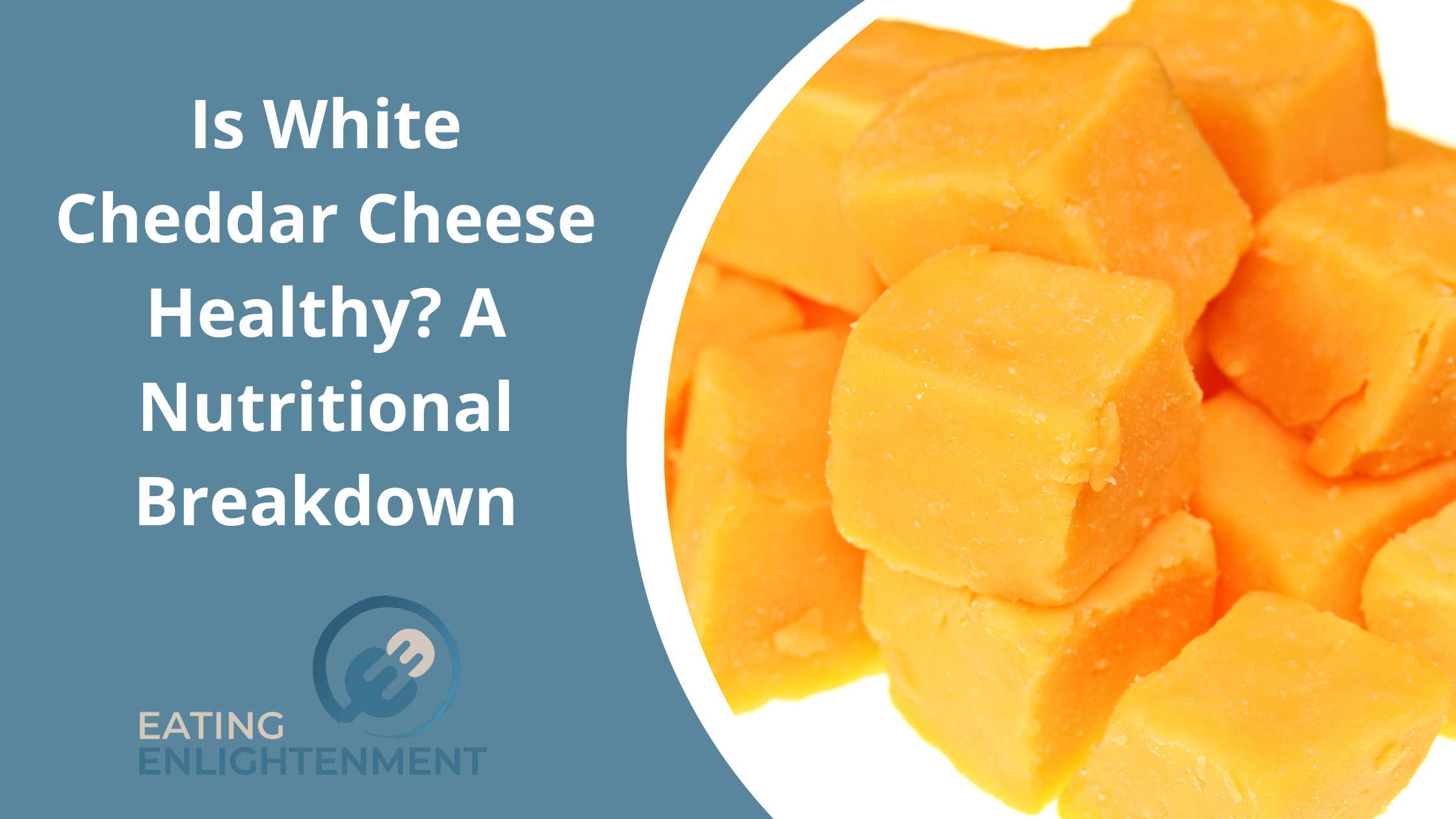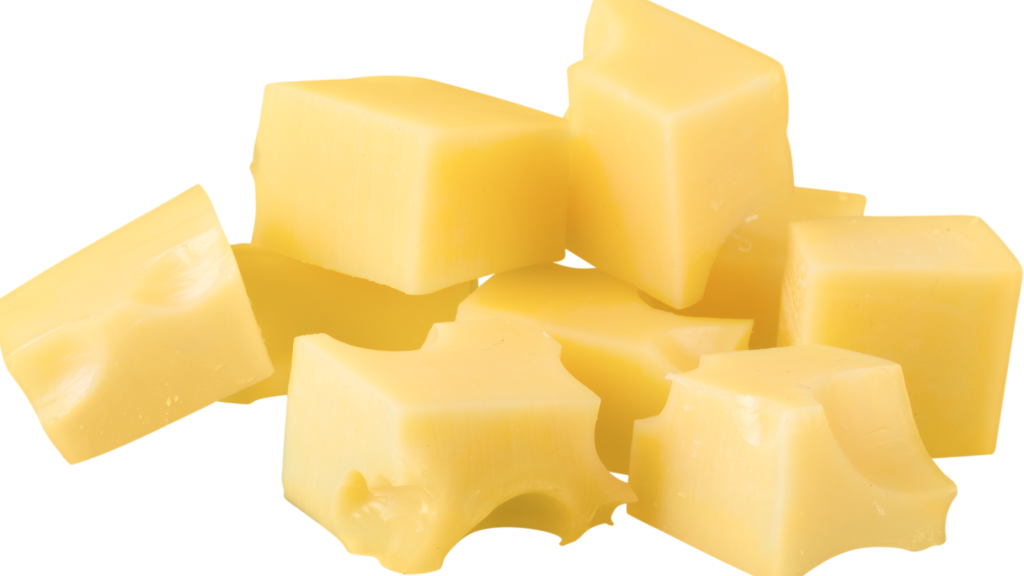Cheese is a beloved food worldwide and is often seen as a guilty pleasure due to its high-fat content. White cheddar cheese, in particular, is a popular choice due to its sharp and tangy flavor. But is this type of cheese healthy?
In this blog post, we will explore the nutritional breakdown of white cheddar cheese to understand if cow’s milk and it can be a part of a healthy diet.
Nutritional Value of White Cheddar Cheese
White cheddar cheese is a good source of calcium, vitamin D, and protein. It contains 113 calories per ounce, 9 grams of fat, 6 grams of protein, and 202 mg of calcium. Compared to other cheeses, white cheddar is relatively low in sodium, which is excellent for those watching their sodium intake.
While it contains a significant amount of fat, it is essential to remember that fat can be a part of a healthy diet as long as it is consumed in moderation.
Benefits of Calcium and Vitamin D
Calcium and vitamin D are essential nutrients that are crucial for bone health. Calcium helps to build and maintain strong, healthy bones, while vitamin D helps the body absorb calcium. Consuming white cheddar cheese can be an effective way to get these nutrients into your diet.
Risks of High Cholesterol
While white cheddar cheese can be a part of a healthy diet, it is essential to understand that consuming too much cheese can lead to high cholesterol levels. Cholesterol is a type of fat found in animal products, including cheese.
Consuming too much cholesterol can increase your risk of cardiovascular disease and other health problems and impact on lactose intolerance. Therefore, it is essential to consume white cheddar cheese in moderation and as part of a balanced diet.
Ways to Incorporate White Cheddar Cheese in Your Diet
If you are a fan of white cheddar cheese, there are many ways to incorporate it into your diet healthily. Instead of eating it alone, try adding it to salads, soups, and sandwiches.
You can also make cottage cheese and use it as a topping for baked sweet potatoes or roasted vegetables. Be mindful of portion sizes and choose high-quality, organic white cheddar cheese without added preservatives and artificial flavors.
Which cheddar cheese is healthiest?
Cheddar cheese, especially the full-fat version, is rich in protein, calcium, and vitamin K2. Vitamin K is crucial for both heart and bone health as it helps keep calcium where it’s needed.
What is healthier, white cheddar or orange cheddar?
The truth is, there’s no health difference between white and orange cheddar cheese. Yes, you read that right!
White and orange cheddar are almost identical regarding their potential health benefits too. They are both good sources of protein, calcium, and other nutrients.
But why do they look so different, you ask? The color difference comes from a natural vegetable dye called annatto. This dye is added to milk proteins give orange cheddar its bright color. It doesn’t change the taste or nutritional value of the cheese.
So feel free to choose the cheddar cheese, white or orange. Both types milk cheddar offer similar nutritional benefits. Remember, enjoying your food is also a vital part of a healthy diet!
Is cheddar cheese good or bad for health?
Cheddar cheese can be a healthy addition to your diet. Surprised? Here’s why.
Cheddar cheese is packed with essential nutrients such as protein and calcium that our bodies need to stay strong. Protein helps build and repair our muscles, while calcium keeps our bones sturdy.
But wait, there’s more! Did you know that cheddar cheese also has vitamin B12? This vitamin is essential for our brain and nervous system to work well.
Now, you might be thinking, “What about the fat in cheddar cheese?” Yes, cheddar cheese does have fat. But remember, not all fats are bad. Our bodies need some fat to absorb specific vitamins and to keep our skin and hair healthy.
So, what’s the bottom line eating cheese is? Like most foods, cheddar cheese can be part of a healthy diet when eaten in moderation. Remember to balance it with plenty of fruits, veggies, whole milk cheddar, and lean proteins.
Is it healthy to eat cheddar cheese every day?
The good news is, yes, you can enjoy cheddar cheese daily. But, like with all foods, the key is moderation.
Why moderation? Well, while cheddar cheese is packed with protein and calcium, it also has things like calories, sodium, and saturated fat. Too much of these can lead to health problems like high blood pressure and heart disease.
So how much is just right? According to the Australian Guide to Healthy Eating, about 40g of hard cheese like cheddar is a good amount. That’s about the size of a small matchbox.
Is cheddar cheese a good fat?
Cheddar cheese, like many dairy products, does contain fat. But did you know not all fats in dairy foods are created equal? Some fats are good for us and necessary for our bodies to function correctly.
The fat in cheddar cheese is a mix of good and not-so-good fats. About 2/3 of the fat in cheddar cheese is saturated fat, which we’re often told to limit. But don’t worry! The other 1/3 is unsaturated fat, considered a “good” fat.
Unsaturated fats can help lower harmful cholesterol levels and are essential for heart health. So, in that sense, yes, cheddar cheese can provide some “good” fats!
What is unhealthy about cheddar cheese?
While cheddar cheese is a delicious source of essential nutrients like protein and calcium, there are some things you need to keep an eye on.
First off, cheddar cheese can be high in saturated fats. Too much of these fats can raise the level of cholesterol in your blood, which may increase your risk of heart disease.
Second, processed cheese and cheddar cheese can also be high in sodium, which is a fancy name for salt. Consuming too much sodium might lead to high blood pressure, another risk factor for heart disease.
Is White Cheddar Cheese Healthy Conclusion
In conclusion, white cheddar cheese can be a part of a healthy diet when consumed in moderation. It is a good source of calcium, vitamin D, and protein, but it is essential to be mindful of its high fat and cholesterol content.
Incorporating white cheddar cheese into your diet in a healthy way can be a delicious way to enjoy this beloved food while reaping its nutritional benefits.









